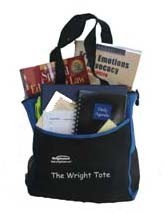Doing
Your Homework:
Struggling with Dyslexia AND French 101
by Sue Whitney, Research Editor, Wrightslaw
"My 9th grade daughter is dyslexic. She has had a 504 Plan since second grade.
Academically, she is very successful. But, she is struggling with French. The teachers think she's just lazy.
Should she have taken French later in school, learned more English first?"
Sue's Response
One Question, Many Issues
You only asked one question, but, I see a number of issues here.
As I read your email, my concern is that I am not sure you know what your daughter's reading disability looks like objectively on paper.
- Does she need remediation, not just accommodation?
- Does she need reading instruction to improve her skills?
- Has she had a current reading evaluation?
Without test scores and the recommendations of a private sector evaluator, you will only be making assumptions about what she really needs.
Accommodation
A Section 504 Plan will accommodate your daughter's disability, but not necessarily do anything to remediate it.
Reading Instruction
For your daughter's English skills to improve, she must have reading instruction.
Unless she receives reading instruction, there is no reason to assume that her reading skills will improve. A second language will not be any easier in the future than it is now. Without a very solid base in English language, learning a second language will be difficult.
Latin is one of the base languages of English and is sometimes a good choice of a second language for a dyslexic student. If she has not had reading instruction after elementary school, that may not be the case. She may not be up to the point in English for the common elements in the two languages to be evident to her.
Reading Evaluation
If your daughter has not had a reading evaluation lately, I suggest that you have one done now. Most colleges require an evaluation that is less than 2 years old (if she will ask for accommodations in college) so you will probably need to have another one done later in high school.
I suggest one now because her disability is interfering with her academics. You need to know as much as you can about her needs and abilities if you are going to make a good decision.
Finding an Evaluator
This is what the International Dyslexia Association (IDA) describes as an appropriate reading evaluation. Contact your state branch of the IDA to find an evaluator. You will also find evaluators listed in the Yellow Pages for Kids.
Understanding What Tests Mean and What They Measure
An evaluation will give you a roadmap in planning for the future. The evaluation should identify your child's problems and include a plan to address these problems. You can learn how to track your child's progress or lack of progress. Read Understanding Tests and Measurements.You really need to be sure from the evaluation what she needs.
Once you know that, you can see if a second language fits into that. You will also be sure whether or not she needs reading instruction. Her grades do not tell you that.
Get Advice from an Advocate or Attorney
If the evaluation shows that your daughter needs reading instruction to get her skills to grade level, you may need an advocate or attorney to advise you and to get the services soon enough to be of value.
These are directories of advocates and attorney that will be helpful.
The Council of Parent Attorneys & Advocates (COPAA) website has a listing of attorneys/advocates.
National Disability Rights Network. Go to the website to find out where to get help in your state.
Yellow Pages for Kids lists Legal and Advocacy Resources in your state.
Looking Toward the Future
These resources will help you and your daughter prepare for college.
Documenting a disability and requesting accommodations on the SAT.
Know your Rights and Responsibilities in College
College:Continuing and Higher Education
At-Risk Students and the Study of Foreign Language in School
Good Luck,
Sue Whitney
Meet Sue Whitney
Sue Whitney of Manchester, New Hampshire, works with families as a special education advocate and is the research editor for Wrightslaw.
In Doing Your Homework, Suzanne Whitney gives savvy advice about reading, research based instruction, and creative strategies for using education standards to advocate for children and to improve public schools.
Her articles have been reprinted by SchwabLearning.org, EducationNews.org, Bridges4Kids.org, The Beacon: Journal of Special Education Law and Practice, the Schafer Autism Report, and have been used in CLE presentations to attorneys.
Sue is the co-author of Wrightslaw: No Child Left Behind (ISBN: 978-1-892320-12-4) that was
published by Harbor House Law Press, Inc.
She also served on New Hampshire's Special Education State Advisory Committee on the Education of Students/Children with Disabilities (SAC).
Sue Whitney's bio.
Copyright © 2002-2022 by Suzanne Whitney.
| |||||
|
|
|||||
|
Copyright © 1998-2026, Peter W. D. Wright and Pamela Darr Wright. All rights reserved. Contact Us | Press l Mission l Our Awards l Privacy Policy l Disclaimer l Site Map |
|||||
To Top







